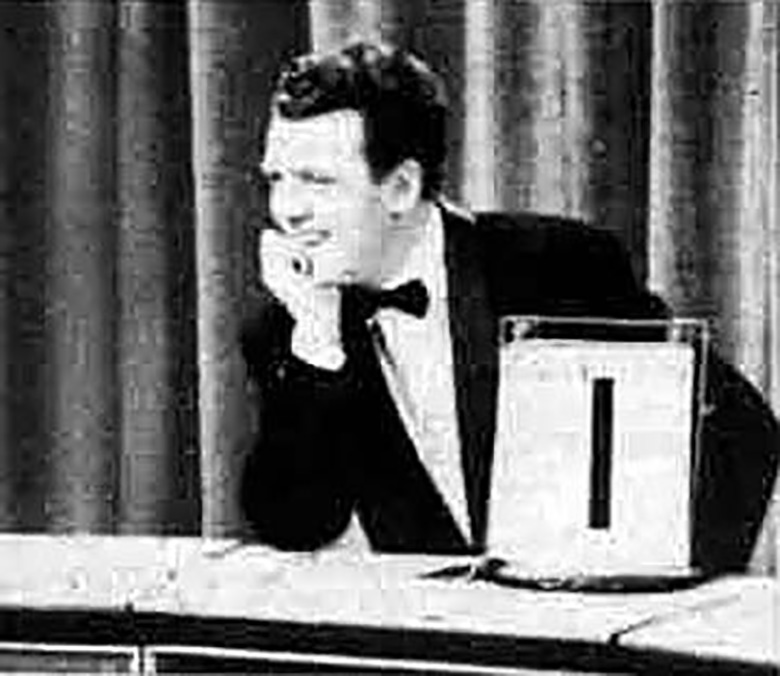Big Red Book
Celebrating television's This Is Your Life
27 September 1957

The question is multiplied many times and the titles are permuted beyond calculation; but the favourite is 'When is this 'ere What's My Line and This Is Your Life startin' up again?'
So that we get it right from the start – This Is Your Life begins on Monday, and What's My Line? on Sunday in BBC television.
The two programmes have something in common. In both we have people reacting naturally to the unexpected. In both it is the easiest thing in the world to associate ourselves with the person under fire.
All of us could have been sagger-maker-bottom-knockers if we'd tried; and each of us likes to feel we, too, could have tasted the champagne-slipper success of an Ada Reeve or possessed the taut courage of a Stanford Tuck.
Yet they are very separate programmes with characters of their own.
It will be a nostalgic reunion night so far as I'm concerned on Saturday when David Nixon, Lady Barnett, Barbara Kelly and Gilbert Harding probe and peer at and joke and chaff the sports who challenge them with – 'What's My Line?'
I know the return of the programme will be cursed as roundly as the first cuckoo and shied from as the dreaded advertisements that tell the diminishing shopping days to Christmas.
It seems always to have been that way. But like the cuckoo and like Christmas, we're somehow glad when it arrives.
Incidentally, during the past two years, I've been going to New York to appear on the panel of the American What's My Line? A rewarding experience if only to see what it's like from the other side of the fence – asking questions instead of steering answers.

This Is Your Life is a programme that excited me from the moment I laid eyes on it. It struck immediately as pure television, unadapted and untranslated from radio or stage or cinema or any other medium you care to mention.
Our early battles were with those who felt we were prying into people's business, that we were foisting on them former friends they might not wish to see again, that we risked causing displeasure in the avowed task of doing the opposite.
The facts have proven something very different.
A team of skilled investigators has searched for items to illuminate the 'Life,' not to peer at what is no business of yours or ours.
A double check is always made with the subject's nearest and dearest to anticipate and avoid any disasters of embarrassment.
Since the programme began not one person who has been the subject of This Is Your Life has failed to say afterwards how much they enjoyed the experience and how happy they were to have been reunited with old friends.
And, at last, we have laid low the idea that some people know in advance that their lives are to be portrayed by us.
We have cancelled programmes almost by the dozen when we even suspected the subject was aware of our intentions.
We have changed the times on clocks along a predetermined route. We have secured a driver expert in getting lost.
We have disguised the whole front and foyer of a theatre. We have bluffed and double bluffed to preserve secrecy and give us the vital element of surprise.
But with all I could tell you of This Is Your Life I could not describe it so adroitly or with such surgeon precision as did Maurice Wiggin in the Sunday Times.
'Vulgar, of course, sometimes mawkish, sometimes embarrassing, like life itself, this brilliant theatrical device of springing his past on some unsuspecting cove, magically confronting him with old associates and associations, first the voice, then the face, then the awkward or unabashed embrace. Here is theatre and actuality and education, and a compulsive entertainment which is strictly of our time, pure television, unmanageable in another medium.'